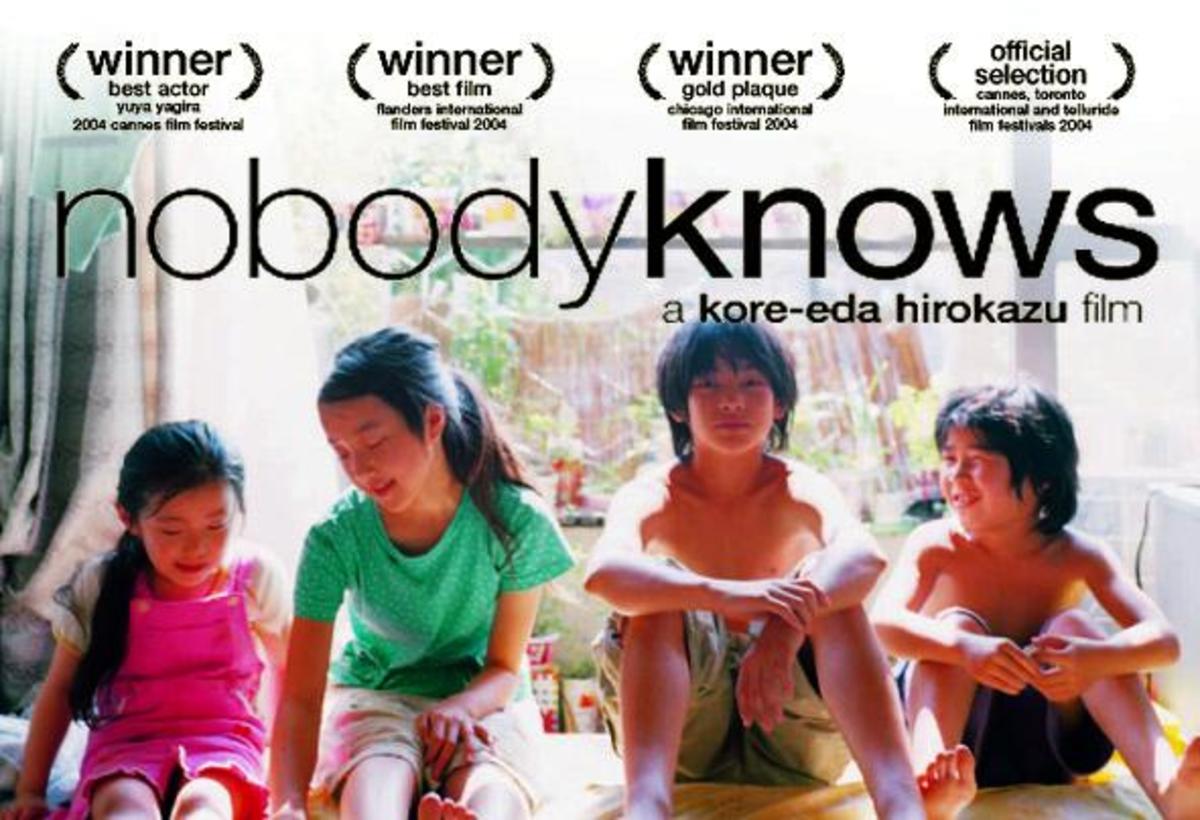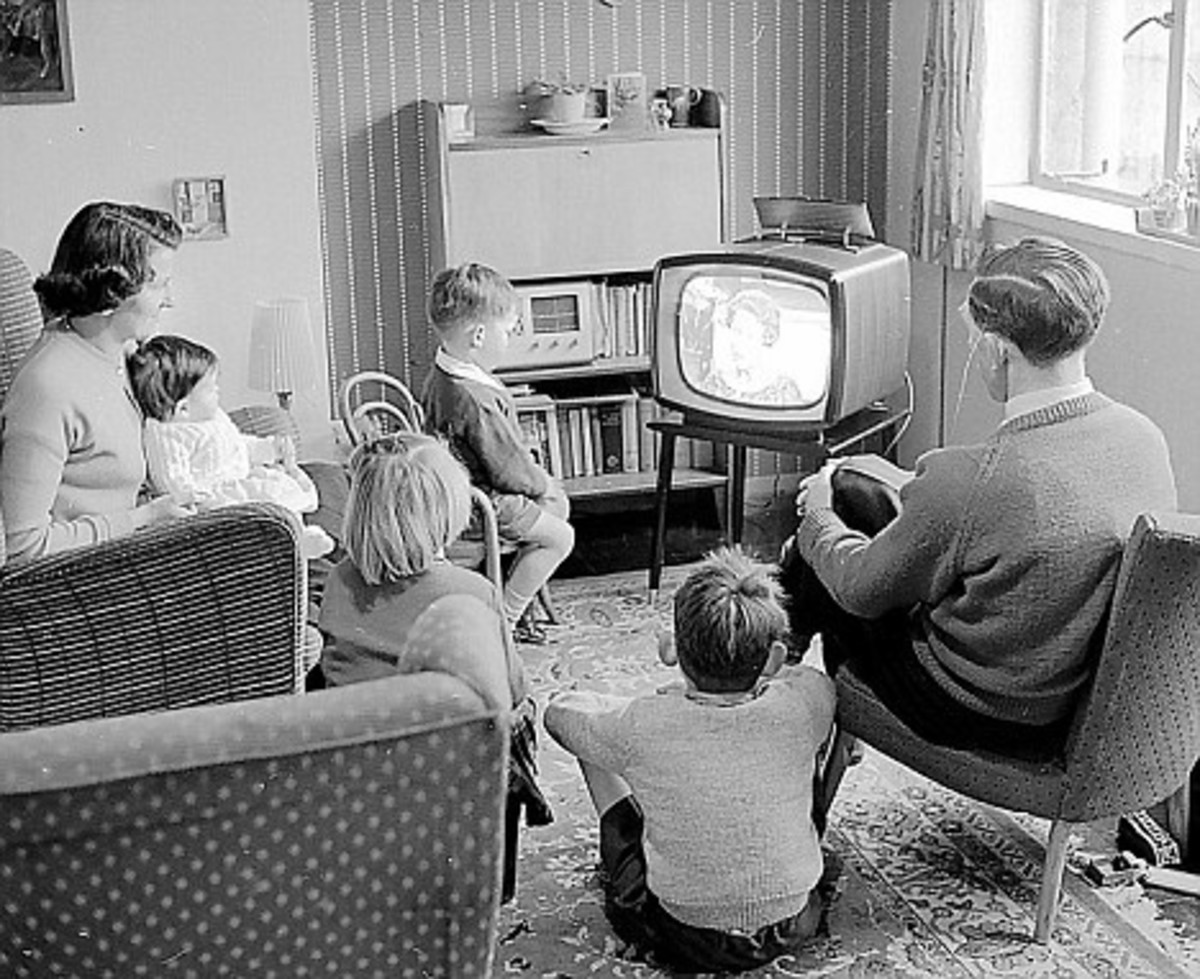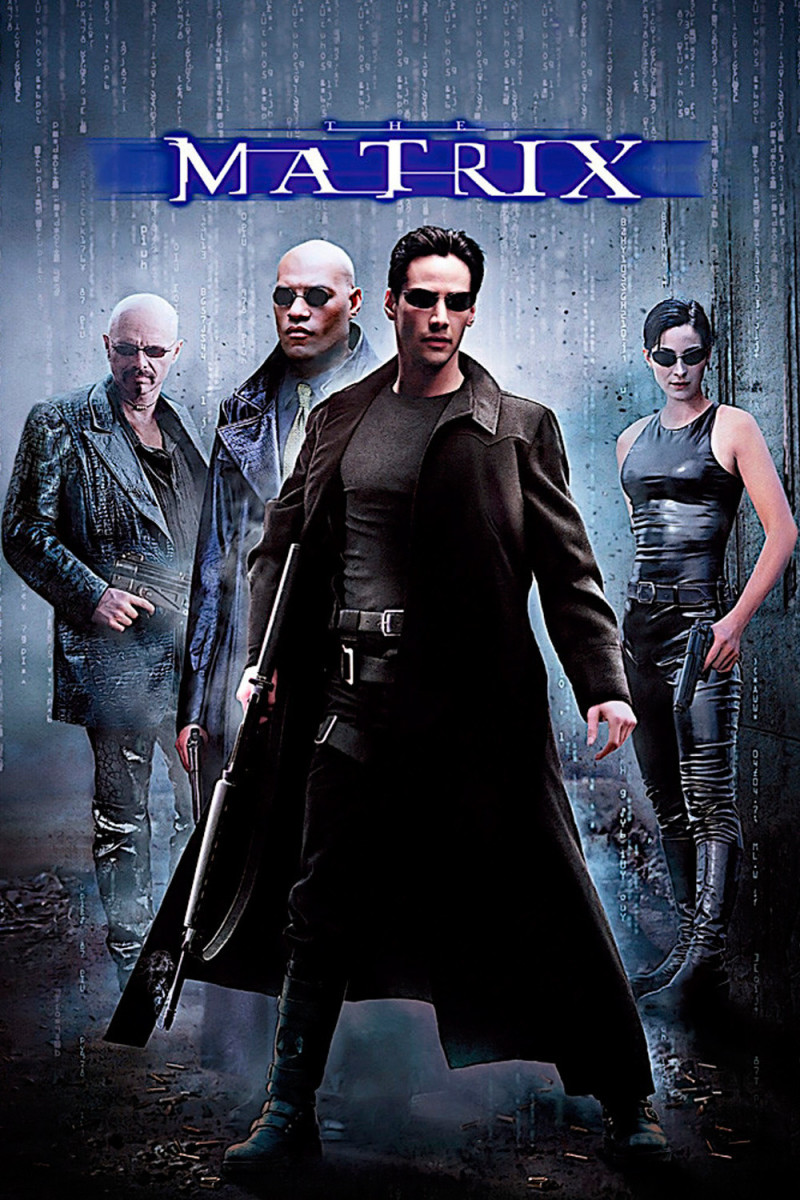The Top 10 Movies That Don’t Suck: A Critique of Roger Ebert's Book

Critiquing the Critic
How many times have you wanted to see a movie based on the trailer only to check what groundbreaking film critic Roger Ebert had to say? He knows his movies, doesn’t he? Well, mostly right. Recently, I read his book Your Movie Sucks, which was published in 2007. So, yeah, I’m a little late, but better late than never, right? The book is 333 pages of really, really horrifically bad movies-with the exception of a few. It’s a real small percentage, but a few of the movies in his book aren’t as bad as he says they are. Sure, they don’t deserve Academy awards, but ‘suck’? That’s harsh.
Ebert begins his book explaining about movie reviews and how he came to write a long list of movies he feels aren’t up to snuff. It starts off with Rob Schneider and a letter to Patrick Goldstein who wrote a scathing review of Deuce Bigalow: European Gigolo. Rob was angry that someone wrote a bad review of that movie? Seriously? I can’t argue with that one. That movie does suck.
Ebert then discusses the Brown Bunny saga. If you know anything about the tension between Ebert and indie director Vincent Gallo, you should read this book just for that. He gives a great insight to how the verbal attacks and cursing hexes began and ended. I won’t go through that here, but I will mention that it is a story about a film critic who changes his mind. He shouldn’t have. Even after editing Brown Bunny still sucks, but hey, we all have opinions.
I’m not trying to change Ebert’s mind (because he’ll never read this), but I have to wonder if he’s missing something about certain types of films. The 10 movies on this list share something in common: they are the cheese on top of nachos. These movies aren’t great, but it’s like eating at the movie theater. The food may not be good for you, it may not be what you would normally order, but there’s a reason you didn’t eat before going to the theater. That reason is the experience; the joy of popcorn in an industrial sized bucket with sprayed on butter, the oversized candy boxes and the molten hot cheese on top of your nachos.
Critic’s Criteria
To get this list, there are several things I’ve taken into consideration. The first thing is Ebert’s reasons the movie sucks. Also, Ebert thinks these movies suck, but what about some other similar movies that don’t seem to make this book? I’ll compare and contrast and on occasion I’ll quote his book and make my argument why he doesn’t get the cheesy goodness.
The next thing to consider is the genre of film and the target audience. Ebert is brilliant at analyzing and pull out nuanced theoretical observations when reviewing movies. This doesn’t mean he gets all of them. In fairness, sometimes he’s really not supposed to. Either he’s not the target audience or he’s digging deeper than he really needs to be. What can you say? Not everyone likes a gigantic box of M&Ms. I do. I don’t like Milk Duds, so I get it. Some of these movies are my M&Ms.
The last thing is the movie’s box office take and accolades. These things aren’t the end all, but they should be considered. It’s the butter on top of your popcorn. It’s not necessary, but it sure as hell makes the popcorn a little more appetizing.

10. Reign of Fire (2002)
Soon I will write about the Top 10 Best Apocalypse movies. This one won’t make the list. Having said that and admitting it’s not one of the best doesn’t mean it’s one of the worst. What’s Ebert’s first critique of the movie? “Not since Battlefield Earth has there been worse grooming.” I can’t believe he’s serious. This is a post apocalyptic movie. Is everyone supposed to get their ‘hair did’ and go for their mani and pedi every Tuesday? I’m sure Road Warrior would have been much better Mel Gibson would have shaved and took an occasional shower.
I will agree with Ebert that the plot was thin and didn’t really make as much sense as it probably wanted to. Like Charlie’s Angel’s before it, this movie had a goal in mind when it was made. In this case, the special effects and use of badass looking CGI dragons (for the time) was pretty cool to see on the big screen. In fact, the special effects guys took some awards for their good work. Too bad the movie tanked pretty bad. The depended a little too much on Matthew McConaughey’s persona and Christian Bale’s rising stardom to lift the movie up. It didn’t succeed, but it was one of the movies to really meld CGI and live action. Too bad that same year Minority Report, The Bourne Identity and Spiderman did it better and with more realism. What the other ones missed out on are dragons. Dragons are awesome.

9. Team America: World Police (2004)
Right underneath the title, Ebert quotes Marlon Brando in The Wild One, “What’re you rebelling against, Johnny? Whatddya got?” Then he goes to critique the team of Parker and Stone about needed to offend, but not having a plan. They have a plan. They’re not rebelling against anyone, but they do want to offend everyone.
Ebert gets that they are satirists, but doesn’t seem to understand that they are playing off of morning cartoons from the 80s and early 90s and stereotypes. I’m guessing he’s never watched any cartoons, let alone the South Park cartoons, minus their movie South Park: Bigger, Longer & Uncut. He complains, “The plot seems like a collision at the screenplay factor between several half-baked world-in-crisis movies.” If that’s his complain, he should know that’s exactly what Parker and Stone were going for. Also, the critique about the use of puppets? Yawn. They knew exactly what complaints they would get. I just appreciated seeing something new and you don’t see a movie filled with puppet superheroes everyday. It’s not something I’d want to see everyday, but it was novel.
This is a movie Ebert seems to be taking a little personal. He says, “They may be right that some of us are puppets, but they’re wrong that all of us are fools and dead wrong that it doesn’t matter.” I don’t think that Parker and Stone think everyone is a fool. They make their movies to highlight those that are.
Ebert didn’t get that he wasn’t supposed to extract a political position from the movie. Instead, I believe the idea was to highlight some of America’s stereotypes (of our own country, the far left and the far right as well as how we see others) and put it on the big screen. The movie wasn’t entirely successful in that, but I can’t lambast them just for trying.
Team America: World Police was moderately successful at the box office. It barely broke even in the US and nudged its way to a profit worldwide. It’s hardly a great success story. It is, on the other hand, a movie that looks at why other countries may hate America and digs into that a little bit. It could have dug a little deeper and I admit it’s not for everyone, but it doesn’t do too badly of a job.
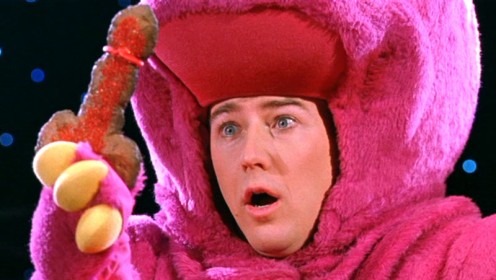
8. Death to Smoochy (2002)
This movie lost close to 5 million dollars at the box office. It bombed. I agree with Ebert when he says the movie is “so miscalculated, so lacking any connection with any possible audience.” Well, almost. It had an audience, but that audience makes up a small portion of the box office, it’s a wonder they didn’t just go direct to video on this one.
In fact, I didn’t like or get the movie until after 2005, which is the year my daughter was born. When she was young and would cry, I would try putting on different kinds of music. It didn’t work. I would try putting on my favorite kids TV shows as a kid and would you believe Bugs Bunny didn’t work? I then tried the PBS learning station called Sprouts. That’s when she was introduced to Barney, a time in her life I hated, but kept her attention long enough for me to get some dinner together and finish homework. I mention all of this because that is the audience this movie is for: moms, dads, grandparents and caregivers who are forced to watch large monstrosities singing nonsense to their toddlers.
Ebert’s error is that he just doesn’t get any part of it. If he’s never seen TV series that were huge hits, he’s never seen a bunch of grown people is costumes, let alone get a satire about it. To get a satire, you have to understand what it’s critiquing. He says, “Both of these clowns wear the kinds of costumes seen at the openings of used car lots in states that doubt the possibility of evolution.” Yep, he’s never seen a toddler’s TV show. First off, they aren’t clowns, Robert. Things have changed a lot since the days of Mr. Rogers and now many big draws are giant live action dinosaurs and men with rosy cheeks who sing songs about everyday life. The song “My Stepdad’s Not Bad, He’s Just Adjusting” is a joke in the movie, but that’s because it’s not too far off what’s happening now.
I get this movie and though I’m not a huge fan of most comedies, I thought this one was hysterical. That’s because I get it. Not everyone will and that the problem with movies that are as specific as this one. Some people will never get it. That doesn’t mean it sucked. That just means you’re not ‘in the know’.
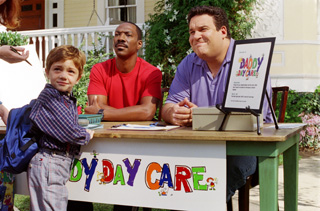
7. Daddy Daycare (2003)
I agree with Ebert when he says that Eddie Murphy has had his share of bombs like I Spy (2002)and Adventures of Pluto Nash (2002) and I’ll go one further by mentioning Vampire in Brooklyn (1995) and The Haunted Mansion (2003). What’s the problem with this? The only movie in his book is Daddy Daycare. He listed two stinkers and I listed two more and this is the one he chooses to include? Why?
Ebert’s main complaint is simple. “What the movie lacks is any attempt to place Murphy and his costars in a world of real kids and real day care.” If I want real kids in a real day care, I’d go to one.
In Screenwriting: The Art, Craft and Business of Film and Television Writing author Richard Walter makes a comment in reference to new writers putting ummm and err into their screenplays and saying that’s the way people talks. He tells them, “But the way people talk is for free; the way people talk in movies costs six dollars.” The same can be said of movies with reaching plotlines and coincidental events. The audience doesn’t want to see real life, they want to pay (now) 10 dollars to see a movie about something that will never happen to them.
I’m not a huge lover of comedies, but there was something enjoyable about this movie. I thought this film had a minimal requirement of funny, most of which were brought by Jeff Garlin, Steve Zahn and the kids and not Eddie Murphy. Would I want my kid to go to his daycare? She’d be better off with Shaun (of the Dead) and whisked away to the Winchester while being chased by zombies. But that’s hardly the point.
In the end, the movie cost 60 million to make and grossed over 104 million worldwide. Not bad for a movie Ebert deems “a film so wrongheaded audiences will be more appalled than amused”. I was slightly amused by the movie and not appalled at all. The one thing that squicked me out was when a 5 year old’s mother said she had to breast feed her son. Ick. I chuckled and was thoroughly grossed out. Good job director Steve Carr, Takashi Miike would be proud.

6. Final Destination 2 (2000)
The original movie, according it Ebert, is pretty good because though it follows all of horror’s dead teenager clichés, it ends up being good because the teenagers are “talking about God” in their “teenage vernacular”. Go ahead Ebert and just say that you’re an old man surprised that teenager could have a real discussion about God and damn it if it isn’t garbled by teenage talk. The gap that he’s showing off like a badge of honor is the size of the Grand Canyon and he should be a little more aware than he is that he’s a little out of touch.
So, what’s Ebert’s main issue? He had a problem with the implausible ways the people die in the film. Do the killings get a little convoluted? And by a little I mean a lot, then absolutely. The crux of the movie (and its many sequels) stands with the lack of a physical antagonist. To show this, director David Ellis stages one improbable method of death after another. It gives the effect that there is more going on that just coincidence and the effects take on a life of its own and in many ways become death itself. It’s an interesting way to show something that can’t be shown.
Let me get this out of the way. Is the first movie better? 99 times out of a 100, the first movies are always better, but there’s nothing wrong with this sequel. It stays pretty true to its formula and delivers a series of events that are interesting to watch. If you liked the first one, you should like the sequel just fine. Ebert was expecting more, but why should he? The first one made back its money worldwide and so did this one. To top it off, it’s just number 2 in the franchise which is now up to 5, so it couldn’t have sucked as bad as he thinks.
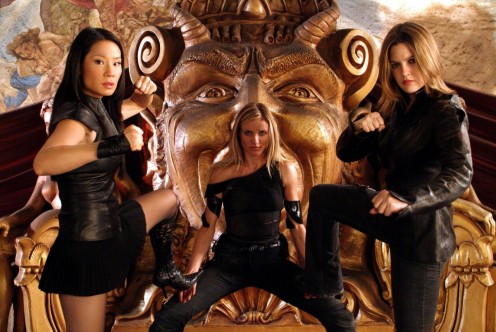
5. Charlie’s Angels (2000)
The first thing Ebert says for this movie is, “Charlie’s Angels is eye candy for the blind.” It almost sounds like he understands this movie, but alas, here is it on the list.
His first issue is that he openly admits he has never watched the TV series, though he is familiar with the plot and basics. He then critiques how perfect Drew Barrymore, Lucy Liu and Cameron Diaz look after every fight. If he had even watched one episode, he’d know that the TV show was pretty much the same. Has he somehow forgotten that the TV show was what launched Farah Fawcett’s career and made her feathered locks famous for all time? Ms. Fawcett looked impeccable after every tussle she got in to.
Sure, they could have gone dark with it, but they didn’t. In fact, the original show had guns, but they went more for a fighting/martial arts approach instead. This movie is more of a comment on the summer blockbusters of its time: fast pace action with an insertion of comedy and self reference. The same could be said for other action movies released that same year: X-Men, Mission Impossible 2, Romeo Must Die and Gone in 60 Seconds. One of these movies also made it into his book, but the other three didn’t. I’ll discuss that one later, but for now I’ll say that some of these movies are better than other, but none of them suck.
Another issue is that Ebert wonders if the movie supposed to be a satire, a comedy, an action movie and more importantly, what’s so funny about it? Well, I guess you would have to have more reference to the TV show other than the plot is about a voice who “issues commands to the three babes who work for his detective agency”. They also fight crime in high heels and look spectacular doing it.
This movie isn’t something you have to think too hard to get. The more complicated you try to make it, the further away from enjoyment you go. Guys get to see 3 hot chicks fight crime while the ladies get to see 3 cool girls to get kick some butt. It’s really that simple. This movie is a big box of box office candy. Though it cost 92 million to make, it grossed over 264 million worldwide. Mmmm…M&Ms.
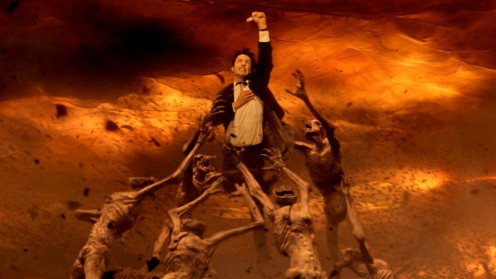
4. Constantine (2005)
Ebert begins by saying this movie is not a part of a trilogy including Troy (2004) and Alexander (2004). The movie going audiences around the world applaud happily, because unlike Constantine, those two movies really do suck. In fact, they had to retool Alexander several times after the movie had already been released. Yet, neither of these stink bombs made it onto Ebert’s list. I’ll give Troy a little credit though, at least that movie made its money back without having to fix it and then fix it again.
So, what is Ebert’s biggest complaint about Constantine? Is it Keanu Reeves’ just being himself once again, only in a different situation? Nope. Is it that Gavin Rossdale is a barely passable actor, though nice to look at? Nope. Is it the fact that Shea LaBeouf and Rachel Weiss are completely underused? Nope. In fact, he doesn’t even mention Shea at all in his review. So, what is Ebert’s issue? I don’t know, since his complaints are more of a chance to be witty than to actually express why the movie doesn’t work for him.
I think the underlying issue (which he doesn’t come out and say) seems to be the fact that in a fight between good and evil, good always wins, so what’s the point of this movie? Ebert chooses to pick apart plot points and criticize the fact that Constantine smokes too much and how odd is it he’s the only one fighting demons. Ebert doesn’t seem to get that Constantine isn’t the only one that fights the demons, but he is the person whose story we follow. Why? Because that’s what movies do.
This movie is just another one of Keanu Reeves movies. He can make some stinkers, but he makes more than his fair share of fun action movies worth the ride like The Matrix (1999) and Speed (1994). If you start to think too much and put too much into movies like this you get The Matrix Reloaded (2003) and Speed 2: Cruise Control (1997). Thank goodness he got out of Speed 2, because that was a movie that really sucked.
Constantine cost 100 million to make and made 230 million dollars worldwide. It definitely found its audience, because there are rumblings of a sequel because of emerging status which has a ‘cult following’ according to director Francis Lawrence. He says if he makes another one it will be gorier and rated R. Count me in.

3. Romeo Must Die (2000)
My biggest problem with Romeo Must Die is that it’s set in Oakland, yet obviously it’s not filmed there. They have some nice overview shots from there and San Francisco, but sigh, Oakland isn’t in Canada. Just saying.
One area where I will agree with him is that there is little romantic chemistry going on between Aaliyah and Jet Li. They seem more like friends than love interests in the movie, but that’s not what Ebert’s main problem with the film lies.
Ebert’s issue is that the movie doesn’t really resemble William Shakespeare’s Romeo and Juliet. He feels it should be more the vain of China Girl (1987) and Romeo + Juliet (1996). I guess he feels there should be more to it, but what does he expect when the movie stars action hero Jet Li and singer Aaliyah? When people see that these two are stars they aren’t expecting to see a performance worthy of Globe Theatre. They’re expecting some fun action sequences and a cool soundtrack. Check and check.
It seems that Ebert’s major issue is that Jet Li uses trickery to complete his effects and doesn’t do all of his stunts by himself. He sounds like a nagging parent, “When Jackie Chan does a stunt, it may look inelegant, but we know he’s really doing it” or “There’s a moment in Jackie Chan’s Rumble in the Bronx (1995)”. He really does harp over the fact that Jet Li isn’t Jackie Chan. Who cares? If he only knew that a mere few years later the saintly Jackie Chan would be drowning us in special effects to hawk V8 juice, maybe he’d change is complaining. I don’t care Jet Li got some help to do his stunts, most actors do. I don’t hold it against them either.
There’s another issue that bothers me about Ebert’s critique of this movie. He thinks it sucks, but somehow Queen of the Dammed isn’t anywhere on his list? Not that they’re anything alike, but damn does Queen of the Dammed suck huge monkey balls, yet it isn’t here. Both star Aaliyah and at least Romeo Must Die was fun to watch. The movie doubled its take the box office with a sprinkle more. There could have been a sequel, but the death of Aaliyah stopped any chance of that.

2. The Grudge (2004)
Let me begin by saying that the original Japanese version is better by far. In fact, every J-Horror film that has been adapted by Hollywood is better than the remake. That’s just how it is.
So, what is Ebert’s issue with the remake of The Grudge? It seems he has a problem with the fact that the movie is set in Japan and has a cast of English speaking Americans. He doesn’t seem to like Sarah Michelle Gellar and is annoyed that Bill Pullman is underused. Buffy would stake him in the heart for that.
I can understand where he’s coming from. I really can. Why see the remake, when you can see the original, which is even better and scarier? The issue lies with the average American horror fan. The majority of this audience is general teenage and twenty something males who have little patience for reading subtitles. That’s why they make these remakes. So boys don’t have to read. It’s the sad truth, but if it gets more people to watch these movies and, more importantly, get them to be interested in the original all the better.
Another issue Ebert has is that he can’t seem to understand why scary things are happening. He’s stuck in the muck of needing more of an explanation than is given. Of course the original does a better job of doing that, but it is not too far off from what Buffy eventually finds out in the end.
What’s odd is that he doesn’t seem to have any issues with the remake of Dark Water. That remake sucked, because there are some cultural effects that can’t be translated easily. That is, most likely, the reason The Grudge was set in Japan and not some random place in the US. The Japanese culture provides influence over the events to come. It shapes it in ways that can not be replicated in the US. That’s what Dark Water does wrong and The Grudge does right.
The finally tally is that The Grudge cost 10 million to make and took in around 110 million dollars. That’s called taking it to the bank. On the other hand, Dark Water (2005) cost around 30 million to make and only took in 49 million. Audiences know a good horror movie when they see it.

1. 13 Ghosts (2001)
I really can’t believe his first complain, no nag, is about how loud the movie is. Maybe he should complain to his local theater and pull up his big girl panties. It’s a feature film, not Sunday mass.
Ebert sounds like an outraged mother-in-law bent on breaking her son’s wife until he comes back home to tell her how much he misses her. He doesn’t like the editing, the story or the characters. He seems to approve of the set, the special effects and the production, but doesn’t go where the movie is taking him.
Maybe it’s because he’s not paying attention. “What intrigues me is that this house-its shrieks of terror and its moving walls-attracts no attention at all from the neighbors, even late in the film when truly alarming things are happening.” Is he serious? The house was in the middle of nowhere. It’s a house made of shatterproof glass and built by a maniacal man capturing ghosts. Where does he think this guy is going to build this house? Next to Ward and June Cleaver?
When you see the house you’ll note that there are no neighbors and this movie is exactly what it’s supposed to be. A well acted movie (well, minus Shannon Elizabeth) that scares and takes you on a ride.
By the way, the movie is called Thir13een Ghosts not 13 Ghosts as he wrote it in his book. It’s like his poor ears were so tortured by the movie’s loud sound that he couldn’t even get the name right. 13 Ghosts is the original 1960 movie this one was based on. There’s a difference and his work just shows his own laziness.
The movie cost 20 million and made over 68 million worldwide. It has become a Halloween favorite and has also made my list of 10 Of the Best Obscure Horror Movies Worth the Watch. You know why? Because Thir13een Ghosts doesn’t suck, in fact, it’s really damn good.
There You Have It
This list may seem long, but it really isn’t. I could barely come by these 10 movies to make the list in the first place, so despite my verbal lashings, Roger Ebert’s percentage is still damn good. If you get a chance, you should read his book. It really is worth it to get an interesting perspective on movies that you should avoid like Swept Away (2002), Freddy Got Fingered (2001), Battlefield Earth (2000) and many others. He really has a wonderful insight into what can make or break a movie. When he gives an honest theoretical critique his observations are hard to deny.


![Death to Smoochy (Widescreen Edition) [DVD]](https://m.media-amazon.com/images/I/518A6XX8Q6L._SL160_.jpg)

